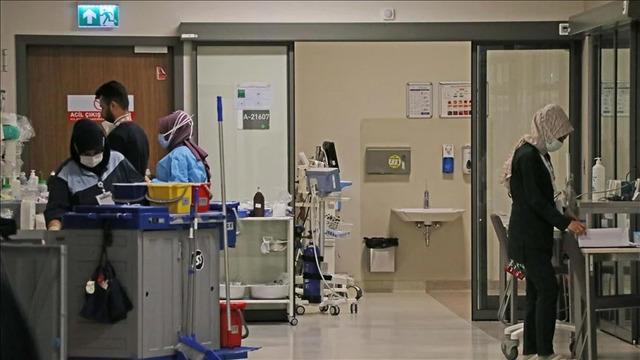Minister Koca answered journalists’ questions after the cabinet meeting held yesterday. Minister Koca’s statement included the following statements:
“WE WILL SOLVE THE APPOINTMENT PROBLEM PERMANENTLY”
“We know the problems experienced on the basis of province, hospital or branch. Our hospital managers are also working hard on this issue. If you remember, I said that the measures will be gradually implemented after a month and the sanctions will be increased. We are working on the branches and hospitals where we have problems, one by one. There is an increasing demand for this. We are also increasing our response capacity. It is also extremely important that the number of physicians we need to train is very important. We have already taken this important precaution for the future. However, we have also made the necessary improvements for the current subspecialties. There is a problem of not using the capacity efficiently. On the one hand, our hospitals determine the capacity, on the other hand, there is idle capacity caused by those who make an appointment and do not come to their appointments. Now, the new analyzes we have made indicate that new measures will be gradually implemented in the coming weeks. “We will solve the problem permanently.”
ATTENTION THOSE WHO HAVE NOT MADE AN APPOINTMENT!
Stating that while the number of people who made an appointment and did not come the previous year was 23 million, this year’s 3-month period was 6 million, Koca said the following about the measures taken:
“We restricted those who made an appointment and did not show up to make another appointment within 15 days. This increased the appointment fidelity rate. However, it was possible for those who made an appointment to cancel their appointment until the last minute. Those who canceled their appointment, even at the last minute, were not restricted. In this case, even if they did not come to their appointment, in order to avoid being restricted, it was possible to cancel their appointment until the last minute. There has been an increase in the number of people canceling at the moment. In this case, that capacity remains unusable. 25 million unique citizens canceled 81 million appointments in the last minutes. Since we cannot make new appointments for these vacancies, 17 million appointment capacity remains idle. Appointment holders will need to give this approval by 23.59 the day before the appointment. We will make an appointment for someone else instead of the appointments that have not been approved. Thus, we will use the idle capacity created by last minute cancellations efficiently, which corresponds to a 20% capacity increase. For those who do not come even though they have received and given approval, they will not be able to apply to any physician or health facility in the same branch. Repeat appointments cannot be made from the same clinic. With the method that will come into effect soon, we will make appointments closed to all branches for a period of 15 days for those who have made two appointments but did not come to their second appointment. “We start from here, and we will continue to take additional measures as the implementation progresses.”
“WE WANT TO GIVE THE SENSOR TO INSULIN PATIENTS FOR FREE”
Stating that people with type-1 diabetes have major problems with insulin monitoring, Minister of Health Koca made the following statement:
“Using an insulin sensor has a significant effect on keeping diabetes under control. However, as you know, the sensors are imported and their cost is quite high. We want to give the sensor free of charge to all our citizens with type-1 diabetes. It is very advantageous, especially in the child age group, in terms of ease of use in follow-up and reliable data collection.” We have started to localize the sensor, it has been produced in a laboratory environment. Mass production is being prepared. It will be put into clinical use with the pilot production. We want to start using it in the clinic within the next 6-7 weeks. “We want to reach out to children, especially children. The sensor we have developed will be 90% local in terms of value. We will put it into use gradually, but it will be free for every group.”

